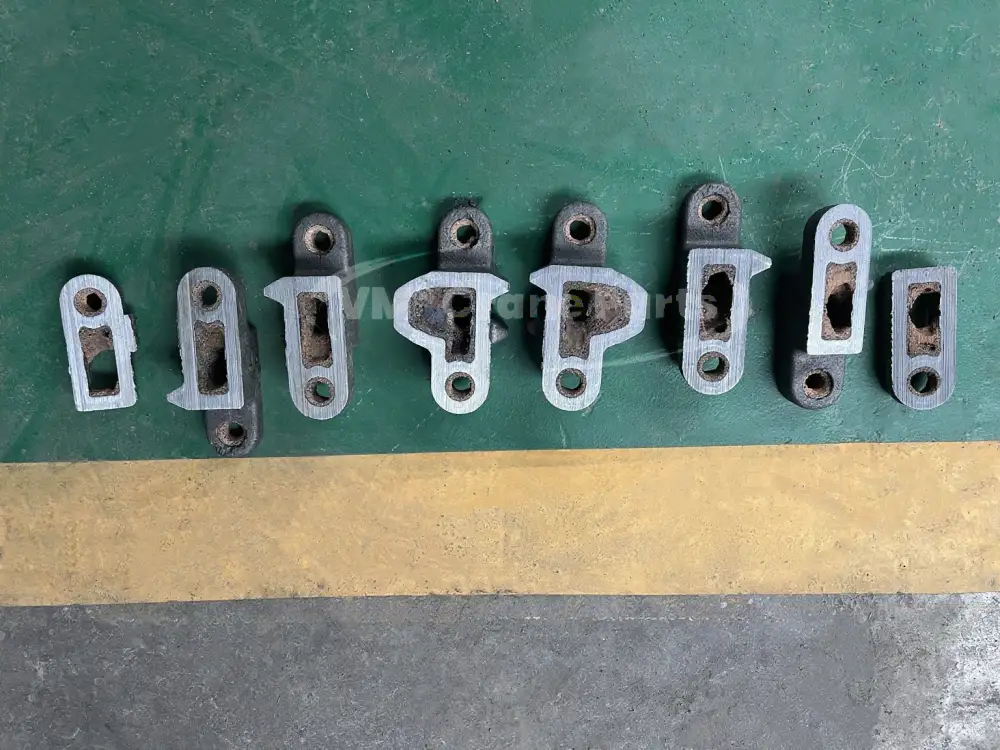
Sany SCC1500C Track Shoe Cutting Test
VM recently conducted cutting tests on the Sany SCC1500C track shoe of its flagship product. Cutting tests inspect the Sany track shoes for pores, inclusions, or other casting defects. This is key to assessing material quality, casting process quality, and ultimately reliability.
Why Conduct Sany SCC1500C Track Shoe Cutting Tests?
As the core load-bearing component of a crawler crane in contact with the ground, the performance of the track shoe is directly related to the safety and stability of the equipment in complex and harsh construction environments. This is particularly true in high-intensity, high-impact operations involving debris and sharp objects, such as mining, building demolition, large bridge hoisting, and wind turbine equipment installation. Track shoes are particularly susceptible to multiple challenges, including cutting by sharp objects, intense friction, and continuous heavy pressure.
If track shoes experience rapid wear, damage from cutting, or even breakage, they not only affect crane operating efficiency but can also cause equipment instability, operational interruptions, and even accidents, with disastrous consequences.
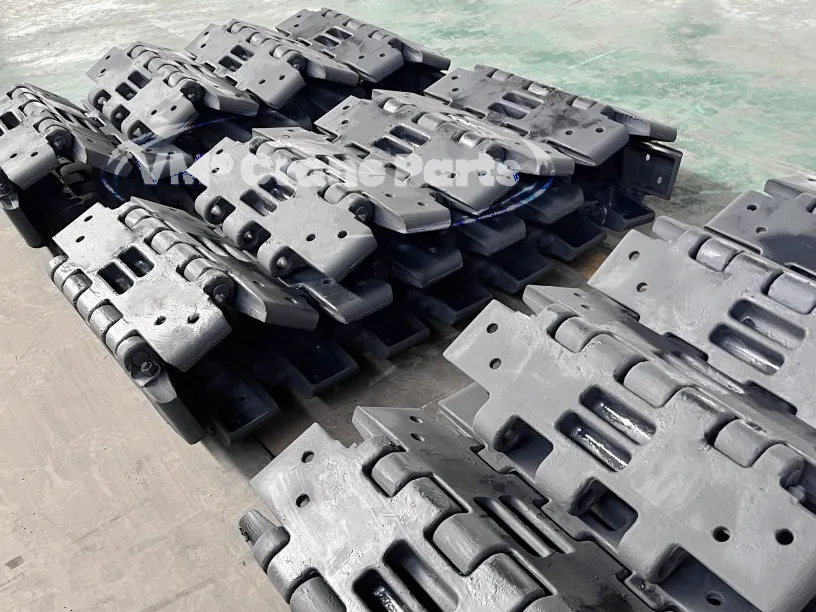
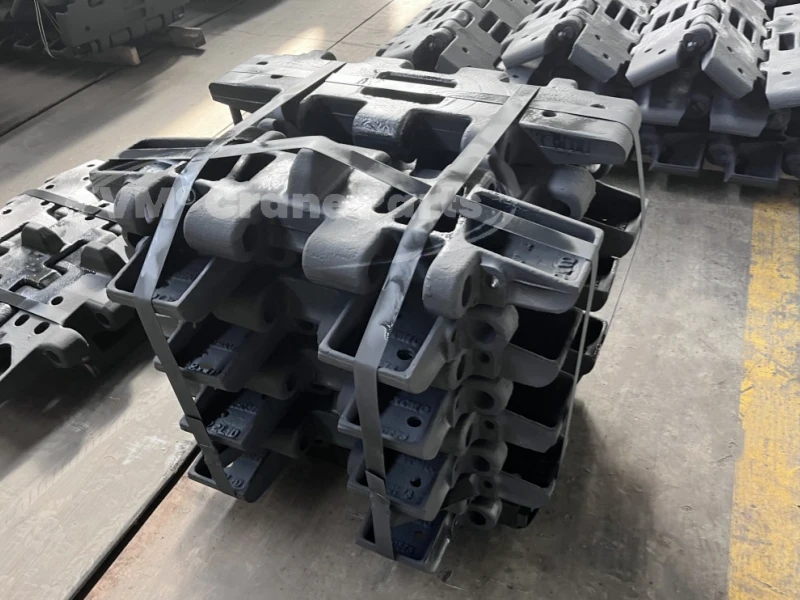
Experimental Results
Cutting tests, non-destructive testing (such as X-ray and ultrasonic testing), and metallographic analysis confirmed that the SCC1500C track shoe is free of internal defects, including pores, inclusions, shrinkage, and cracks. This demonstrates:
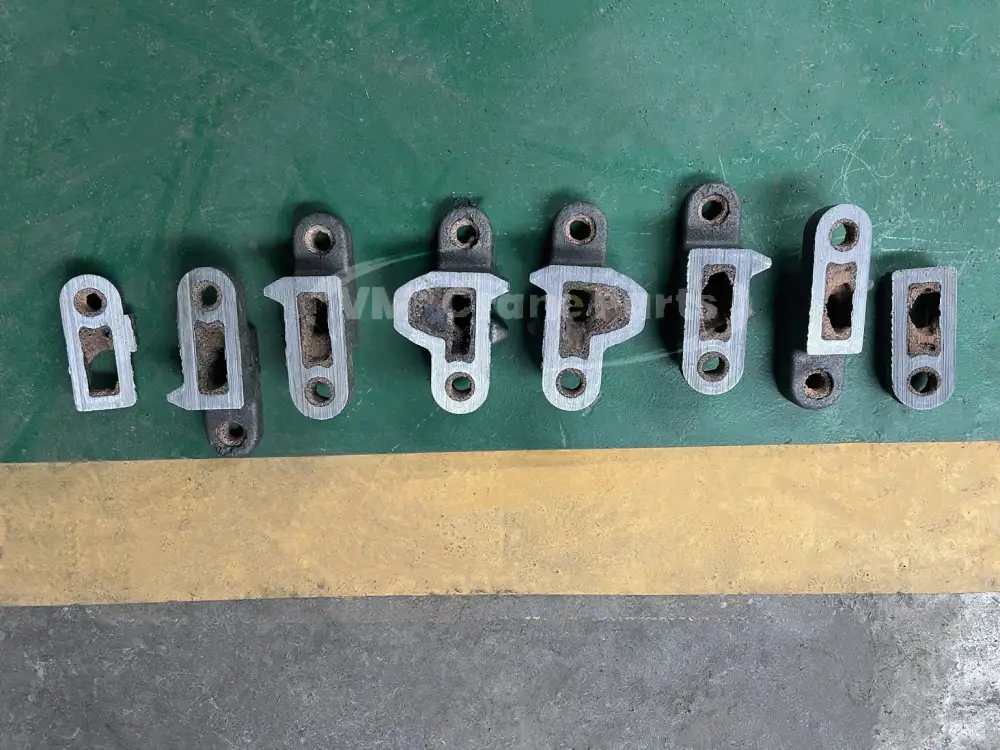
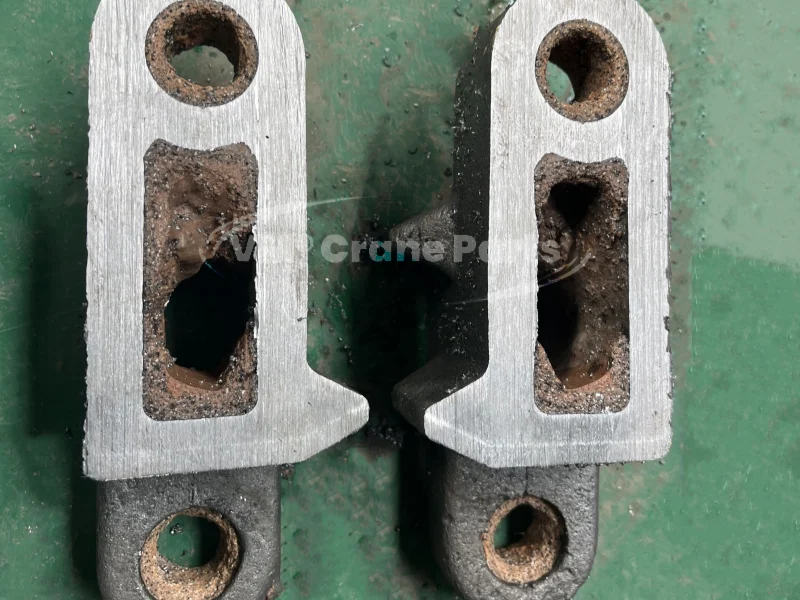
1. Mature casting process and strict quality control
This demonstrates that VM utilizes advanced precision casting technology in track shoe production, achieving high-standard process control in all stages, including melting, pouring, cooling, and cleaning.
2. High material density and excellent mechanical properties
The absence of pores indicates a denser metal structure, resulting in higher levels of strength, toughness, and fatigue resistance, enabling it to better withstand demanding conditions such as large-tonnage lifting, complex terrain, and impact loads.
3. More stable and reliable test performance
During cutting tests, defect-free track shoes more accurately reflect the inherent performance of the material and structural design, rather than being affected by internal defects. Their resistance to cutting, abrasion, and fracture can be fully and stably demonstrated, providing valuable reference data that helps optimize product design and processes.
4. Significantly improved safety and service life
Track shoes free of internal defects mean lower failure rates, longer service life, and greater operational safety. For cranes like the SCC1500C, which are used in critical projects such as wind power plants, nuclear power plants, large bridges, and mines, this “zero-defect” quality assurance is crucial.
Available Sany Track Shoe Model
SCC450A, SCC500A, SCC500B, SCC500C, SCC500D, SCC500E, SCC550C, SCC600A, SCC600C, SCC750C, SCC750E, SCC800A, SCC800C, SCC1000A, SCC1000E, SCC1000C, SCC1000D, SCC1250, SCC1500CC, SCC1500D, SCC1800, SCC2500C, SCC2600A, SCC300WE, SCC3200, SCC4000E, SCC5000WE, SCC6500E, SCC7500, SCC8100, SCC8200, SCC8300, SCC10000, SCC16000, SCI1500A, SCI1850A
